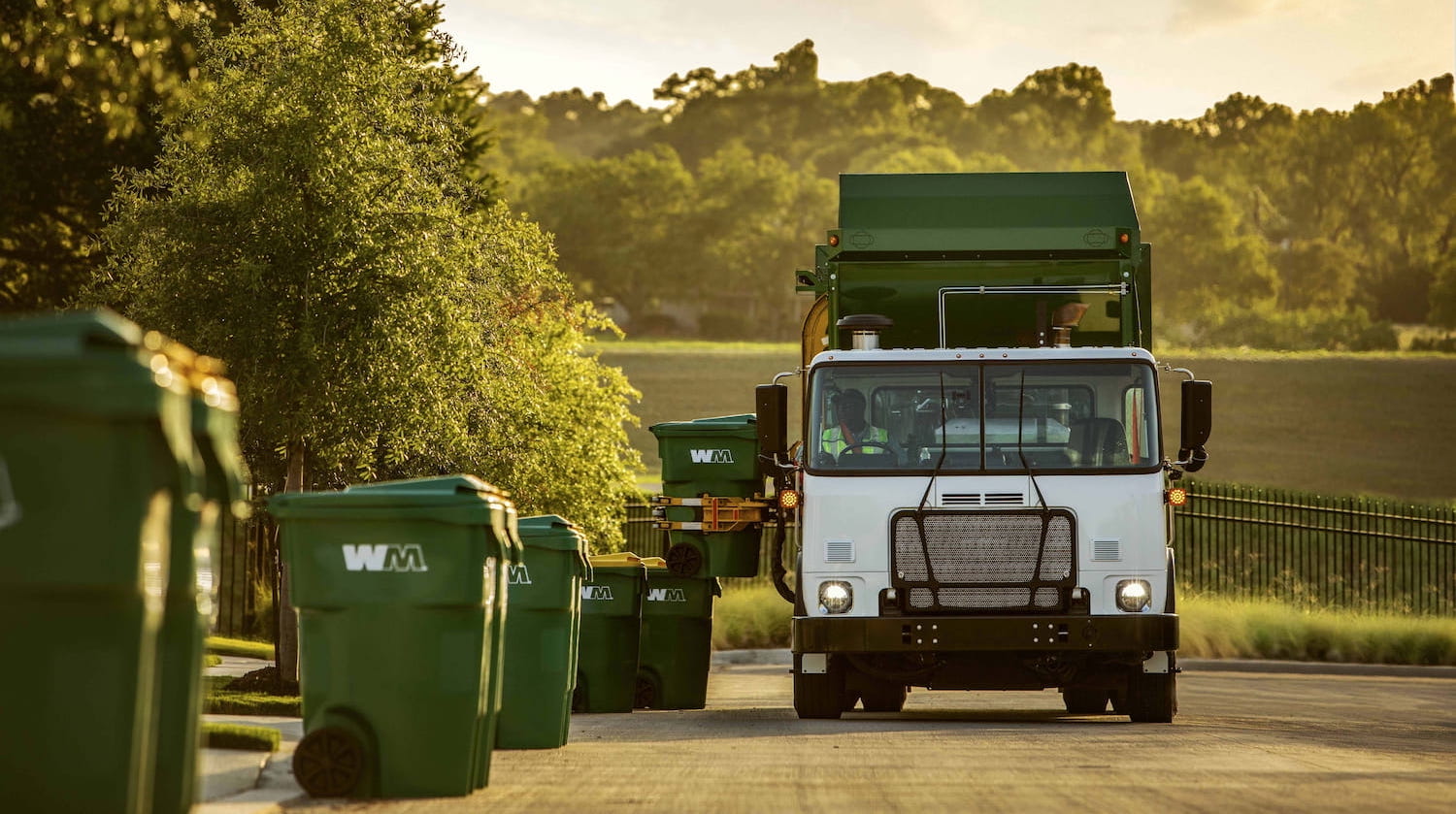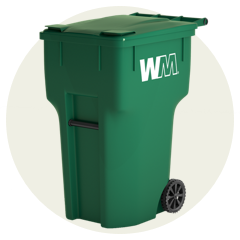If a holiday falls on a weekday, collections for the rest of the week will be pushed back a day. For a Thursday holiday, service would be on Friday, and Friday service would be Saturday. For holidays on Saturday or Sunday, there are no delays. Your regular collection schedule will resume the following week.
Nevada County, CA Home Trash Service
Organics, Recycling & Trash Pickup
At WM, we're proud to take care of our Nevada County neighbors — and our planet — with residential trash pickup, organics and recycling services.

Set Up Service
The city has chosen WM to provide waste pickup, but you'll need your own WM profile for service and billing. Enter your address and we'll help you get set up.

Residential Pickup Schedules
For regular service and holidays
My WM & MoreQuick access to My WM and more tools to manage your service.
Quick access to My WM and more tools to manage your service.
Service Guides & Instructions
WM provides a 96, 64, or 35 gallon cart for weekly trash collection. To view your specific service day, please click here, enter your address and select "Verify”.
Place container on the street with wheels against the curb by 6 a.m. on collection days and remove same day. Keep container at least three (3) feet from parked cars, mailboxes, and other obstacles that may prevent WM team members from picking it up.
All trash should be bagged. Do not overfill your container – the lid must close tightly. Overflow and materials outside may be subject to additional charge or will not be collected.
As of January 1, 2022, SB 1383 requires Californians to sort and separately collect food scraps, yard debris, and food-soiled paper from trash and recycling. This means food scraps are no longer acceptable in your trash container. For more information on SB 1383, visit wm.com/SB1383.
Acceptable items include standard household trash like chip bags, plastic bags, and textiles (donate if lightly used).
Non-acceptable items include construction waste, auto parts, tires, household hazardous waste (paint, oil, household cleaners), medical or electronic waste, and food scraps.
Sign up for new service online, any time by entering your address in the "Set Up Service” section above.
Did you know you can get updates on your service ETA by signing up or logging in to your My WM account? If containers were curbside by the specified time and were not emptied, you can also report a missed pickup online. On the main dashboard, locate the services card. Click details on current service to submit your missed pickup request.
Missed pickups must be reported within three (3) days and will not be eligible for recovery pickup if your container was not out or was blocked at the time of service. Visit our support article for more details.
Additional carts are available for a fee. Click here to request help with changes to your services.
Sign up or log in to your My WM account. Locate the appropriate service card (trash, recycling, organics, etc.) on the main dashboard and select "Container Issue” and follow the prompts to submit.
Questions? Unable to submit your request? Please scroll to the bottom of the support article to Request Help.
These documents contain important information related to your WM services. We recommend you print or download them for quick reference.
Need help?
Find a solution online or connect with a support agent.